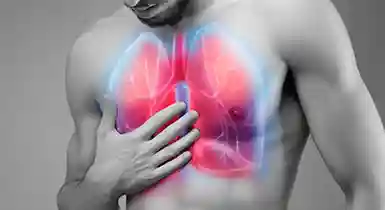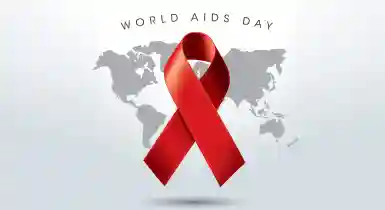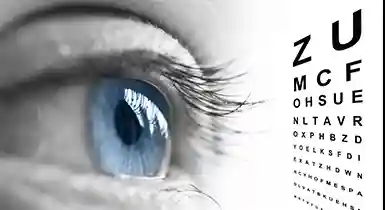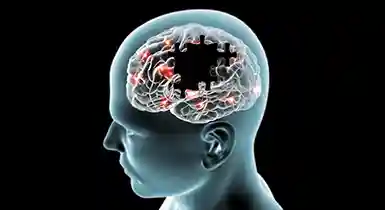Understanding COPD

COPD, or chronic obstructive pulmonary disease, is the name used to describe a number of conditions affecting the lungs including emphysema and chronic bronchitis. When smoke and other pollutants enter the lungs, the cilia are often paralyzed or destroyed. This causes airways to become swollen and narrowed. Over time, lungs with Chronic Obstructive Pulmonary Disease lose their elasticity, get big and floppy, and make it hard for to breathe and release air. What is respiratory medicine speciality? Respiratory medicine is a speciality which deals diseases related to our respiratory system which consist of the nose, nasal cavity, pharynx, larynx, trachea, smaller conducting airways (bronchi and bronchioles), lungs and pleura What is the function of our lungs? The lungs’ main function is to help oxygen from the air we breathe enter the red cells in the blood. Red blood cells then carry oxygen around the body to be used in the cells found in our body. The lungs also help the body to get rid of CO2 gas when we breathe out. What is the pathophysiology of COPD? In COPD, less air flows in and out of the airways because of one or more of the following: What are the signs and symptoms of COPD? What are the risk factors associated with COPD? Inhaling pollutants; that includes smoking and second-hand smoke. Fumes, chemicals and dust found in many work environments are contributing factors Genetics can also play a role in an individual’s development of COPD—even if the person has never smoked or has ever been exposed to strong lung irritants in the workplace. What are some options for Treatment? 1)Pursed-Lips Breathing To do purse-lips breathing: 2) Diaphragmatic (Abdominal/Belly) Breathing The diaphragm is the main muscle of breathing. It’s supposed to do most of the work. When you have COPD, the diaphragm doesn’t work as well and muscles in the neck, shoulders and back are used. These muscles don’t do much to move your air. Training your diaphragm to take over more “work of breathing” can help. This technique is best used when you’re feeling rested and relaxed, and while sitting back or lying down. Relax your shoulders. What are some Diagnostic Test? Anyone with the following should get tested: Spirometry is a simple, non-invasive test that is used to diagnose COPD. The machine will calculate two numbers: the amount of air you blow out in the first second, and the amount of air you blow out in 6 seconds or more. A spirometry test can also show your doctor how severe your COPD may or may not be. For further treatment and information please contact are respiratory medicine department at Wockhardt Hospitals About Wockhardt Hospitals: A 50-year-old legacy and tradition of caring is what Wockhardt Hospitals stands on. Wockhardt Hospitals has been proactive in bringing innovative nurturing for better health. Wockhardt Hospitals has become a leading health service provider with its strong presence in the western parts of the country i.e. Mumbai, Nagpur Rajkot, Nasik and Surat. This group of 8 hospitals fulfils the need of the community in its chosen field of super specialty like Cardiology, Orthopaedics, Neurology, Gastroenterology, Urology, Aesthetics and Minimal Access Surgery. Wockhardt Hospitals has state-of-the-art infrastructure. Our prime objective is patient safety and quality of care at all levels. The guiding philosophy is to serve and enrich the Quality of Life of patients and to make life win. Wockhardt Hospitals follow process driven quality systems that adhere to international standards of clinical care, safe environment, infection control and respect for patient rights & privacy. Many of the Wockhardt group of hospitals has accreditation of the NABH (National Accreditation Board of Hospitals &Healthcare), the highest and the most stringent quality standards institution in India and the National authority in healthcare accreditation. To achieve high degree of clinical excellence, we have entered into strategic alliances with Partners Medical International, USA, whereby Wockhardt Hospitals has access to Harvard’s expertise and experience in the fields of surgery and other Medicare services. Wockhardt group of hospitals in India is a preferred destination for patients from Europe, USA, Africa, Middle East and South Asia.
World AIDS Day: 1 December, 2024

World AIDS Day, designated on 1 December every year since 1988, is an international day dedicated to raising awareness of the AIDS pandemic caused by the spread of HIV infection and mourning those who’ve died of the disease. This year the global World AIDS Day 2024 campaign which promotes the theme “ Remember and Commit”, the World Health Organization will highlight the need for all 36.7 million people living with HIV and those who are vulnerable and affected by the epidemic, to reach the goal of universal health coverage. Some Information on This Disease: Most People Get the HIV Virus By: For More Information on Aids Visit Wockhardt Hospitals. Wockhardt Hospitals, a chain of tertiary care super-specialty hospitals has more than 25 years of experience in the creation and management of Super Specialty Hospitals in India. The Internal Medicine Department consists of a team of skilled and compassionate physicians. team act as primary care physicians for patients with simple to complex problems in adults. The doctors provide highest quality of comprehensive healthcare services to patients that are facilitated by access to vast array of technologies, investigations and resources. The aim of the department is to treat and manage chronic disorders and manage hospitalised patients. The Internal Medicine department deals with patients with infections, undiagnosed rare infections as well as common infections such as tuberculosis and HIV, autoimmune disorder, genetic disorder, metabolic syndromes, rheumatologically diseases and haematological problems are accurately diagnosed and managed in the department Wockhardt Hospitals is regarded as a centre of excellence the healthcare domain, having facilities in North Mumbai (Mira road), South Mumbai (Mumbai Central), Navi Mumbai (Vashi), Nagpur, Nasik, Rajkot and Surat. Wockhardt Hospitals has state-of-the-art infrastructure. Our prime objective is patient safety and quality of care at all levels. The guiding philosophy is to serve and enrich the Quality of Life of patients and to make life win.
World Obesity Day: 4 March, 2024

4TH of March is observed as the World Obesity Day every year. Obesity is a global health issue and has taken epidemic proportions. The worrying aspect of this medical issue is that it’s affecting populations worldwide. The World Obesity Federation indicates that if current trends continue, by 2025 2.7 billion adults worldwide will be overweight. Obesity is the number one cause and poses as risk factors for many other diseases and is linked to high mortality rates. The Aim of This Day is to Treat Obesity Now and Avoid the Consequences Later The Common Complications of Obesity Include: Adult Obesity: Obesity is a condition where a person has accumulated so much body fat that it might have a negative effect on their health. Any individual having a bodyweight at least 20% higher than what it should is considered obese. A Body Mass Index (BMI) between 25 and 29.9 is considered overweight. If your BMI is 30 or over you are considered obese. For Adults, the Who Defines Overweight and Obesity as Follows: BMI provides the most useful population-level measure of overweight and obesity as it is the same for both sexes and for all ages of adults. However, it should be considered a rough guide because it may not correspond to the same degree of fatness in different individuals. Causes of Obesity: Obesity occurs when there is more calories intake than you use. The balance between calories-in and calories-out differs for each person. Factors that might affect your weight include your genetic makeup, overeating, eating high-fat foods, and not being physically active. Hormonal imbalances are also associated with weight gain. Risk Factors of Obesity: Being obese increases your risk of diabetes, heart disease, stroke, arthritis, and some cancers Excessive body weight is associated with various diseases, particularly cardiovascular diseases, diabetes mellitus type 2, obstructive sleep apnoea, and certain types of cancer, osteoarthritis and asthma Childhood Obesity Childhood Obesity has now become one of the most serious health concerns of this century and is increasingly affecting the developing nations. Most of the childhood obesity cases are seen in the urban areas. The seriousness of this condition is in the future complications it creates. In the long term, childhood obesity can lead to some serious illnesses like: Some Causes of Childhood Obesity Include: How to Stop Childhood Obesity: Overweight and obesity, is a noncommunicable disease, and is largely preventable. Supportive environments and communities are fundamental in shaping people’s choices, by making the choice of healthier foods and regular physical activity the easiest and therefore preventing overweight and obesity. The Main Protocols to Follow Would Be: Treatment Options of Obesity Include: 1) Reduce on Sugars and Starches (Carbohydrates): The most important part is to reduce your intake on sugars and carbohydrates. These are the foods that stimulate secretion of insulin, which causes fat storage in the body. It is important to try to stick to healthier carb sources like oats, rice, quinoa, potatoes, sweet potatoes, fruits, etc. 2) Eat Protein, Fat and Vegetables essential weight loss tip and essential for weight control The importance of eating plenty of protein cannot be overstated as part of the diet plan to reduce weight High protein diets can reduce desire for late-night snacking by half, and create fullness and supress desire to snack. By adding protein to the diet you can lose weight. Protein is the king of nutrients. 3) A diet based on meat and vegetables contains all the fibre, vitamins and minerals you need to be healthy. There is no physiological need for Grains in the diet. For further queries on obesity and weight management please contact Wockhardt Hospital. Wockhardt Hospitals, a chain of tertiary care super-specialty hospitals has more than 25 years of experience in the creation and management of Super Specialty Hospitals in India. At Wockhardt Hospitals our Endocrinology department, Diabetes and Weight Management Centre at Wockhardt Hospital treat various endocrine disorders .The division has an integrated multi-disciplinary model for providing comprehensive management of the entire range of endocrine conditions. Our team is also actively involved in ongoing research for diabetes and other endocrine disorders. These disorders are investigated and treated by our endocrinologist at Wockhardt Hospital. Wockhardt Hospitals also has unique weight management centre. Together with India’s only physician certified by the American Board of Obesity Medicine, our centre focuses on medical management of overweight and obesity conditions. We have a multidisciplinary team consisting of physicians, dieticians, counsellors and exercise physiologists. The protocol delivers an international evidence-based management for safe and effective weight loss. The program also works in close collaboration with surgical approaches for weight management for those patients that need it, as the Hospital is also a Centre of Excellence for Metabolic and Bariatric Surgery and also has a Surgeon of Excellence. Bariatric Surgery at Wockhardt Hospitals is recognised as a centre of excellence Metabolic and Bariatric Surgery. Our renowned doctor, Dr Raman Goel and his specialised and dedicated team provide the clinical expertise for managing and treating obesity through this super speciality surgery. The team is guided and has immense experience with all surgical protocols for all procedures and Pre & Post-surgical Management. Wockhardt Hospitals have been regarded as a centre of excellence in medical science and surgery with facilities in North Mumbai (Mira road), South Mumbai (Mumbai Central), Navi Mumbai (Vashi), Nagpur, Nasik, Rajkot and Surat. Wockhardt Hospitals is having state-of-the-art infrastructure whose prime objective is patient safety first and quality of care at the core of its strategy. The guiding philosophy is to serve and enrich the Quality of Life of patients and to make life win.
World Sight Day: 10 October, 2024

This year the ‘Call to Action’ for World Sight Day is “Stronger Together”. This year it falls on Thursday 10th October. This day is celebrated to create awareness about vision impairment; blindness as well as sight-related problems. World Sight Day highlights the importance of good vision for all people. According to World Health Organization (WHO) estimates, approximately 285 million people worldwide suffer from low vision and blindness. Of these, 39 million are blind and 246 million have moderate or severe visual impairment. The major causes of visual impairment are uncorrected refractive errors (43%) and cataract (33%). Some Common Eye Conditions: Eyestrain: Glaucoma: Risk Factors Associated with Glaucoma: Signs and Symptoms of Glaucoma: Loss of peripheral, or side, vision, sudden eye pain, headache, blurred vision, or the appearance of halos around lights. Macular Degeneration: Because the symptoms usually do not appear in people under 55 years of age, the disorder is often referred to as age-related macular degeneration. Over 65, macular degeneration may already affect your central vision the vision you need for reading and close work like sewing. The disorder occurs in two forms, dry and wet. The Any delay in treatment may result in loss of your central vision. Night Blindness: Night blindness occurs when you have difficulty seeing in dim light. There are many different forms of night blindness, but it may be linked to liver disorder, vitamin A deficiency, inherited disease of the retina, such as retinitis pigmentosa. Retinal Disorders: The retina is a thin lining on the back of the eye made up of cells that collect visual images and pass them on to the brain. Retinal disorders interrupt this transfer of images. They include age-related macular degeneration, diabetic retinopathy and retinal detachment. Early diagnosis and treatment of these conditions is important to maintain vision. Cataract: A cataract is a clouding of the normally clear lens of your eye. Most cataracts develop slowly and don’t disturb eyesight early on. But with time, cataracts will eventually interfere with your vision. Signs and Symptoms of Cataracts Include: Refractive Errors: Refractive errors occur when the shape of the eye prevents light from focusing directly on the retina. The most common types of refractive errors are myopia, hyperopia, presbyopia, and astigmatism. Eyeglasses or contact lenses are the simplest and safest way to correct refractive errors. Your eye care professional can prescribe appropriate lenses to correct your refractive error and give you optimal vision. Refractive Surgery aims to change the shape of the cornea permanently. Colour Blindness: Colour blindness, also known as colour vision deficiency, is the decreased ability to see colour or differences in colour. The most common cause of colour blindness is an inherited fault in the development of one or more of the three sets of colour sensing cones in the eye. Diagnosis is done by the test consists of a number of coloured plates, called Ishihara plates, each of which contains a circle of dots appearing randomized in colour and size. Eye Infections: Eye infections occur when harmful microorganism’s bacteria, fungi and viruses that invade any part of the eyeball or surrounding area. This includes the clear front surface of the eye (cornea) and the thin, moist membrane lining the outer eye and inner eyelids (conjunctiva). Other infection can include a stye or chalazion. When infection invades the eye’s tear glands, inflammatory conditions such as dacryostenosis and uveitis can result. Common Symptoms Include: Tips of Eye Care: For more information on eye conditions contact our Ophthalmology department at Wockhardt Hospital. About Wockhardt Hospitals: A 50-year-old legacy and tradition of caring is what Wockhardt Hospital stands on. Wockhardt Hospitals has been proactive in bringing innovative nurturing for better health. Wockhardt Hospitals has become a leading health service provider with its strong presence in the western parts of the country i.e. Mumbai, Nagpur Rajkot, Nasik and Surat. This group of 8 hospitals fulfils the need of the community in its chosen field of super specialty like Cardiology, Orthopaedics, Neurology, Gastroenterology, Urology, Aesthetics and Minimal Access Surgery. Our Ophthalmology department Ophthalmology conducts Overall Eye Assessment Procedures and diagnosis the conditions like Cataract, Contact lens clinic, retinal disorders, Glaucoma clinic, Squint & Paediatric ophthalmology. Depending on the various diagnostic modalities, surgical interventions are planned for various ophthalmic cases. Wockhardt Hospitals has state-of-the-art infrastructure. Our prime objective is patient safety and quality of care at all levels. The guiding philosophy is to serve and enrich the Quality of Life of patients and to make life win. Wockhardt Hospitals follow process driven quality systems that adhere to international standards of clinical care, safe environment, infection control and respect for patient rights & privacy. Many of the Wockhardt group of hospitals has accreditation of the NABH (National Accreditation Board of Hospitals &Healthcare), the highest and the most stringent quality standards institution in India and the National authority in healthcare accreditation. To achieve high degree of clinical excellence, we have entered into strategic alliances with Partners Medical International, USA, whereby Wockhardt Hospitals has access to Harvard’s expertise and experience in the fields of surgery and other Medicare services. Wockhardt group of hospitals in India is a preferred destination for patients from Europe, USA, Africa, Middle East and South Asia.
General Health Tips for Diwali – Burns Management

Diwali the most joyous festival celebrated throughout India. It calls for loads of lights, colours, burn crackers and sweets. With the coming of this fiesta, it also welcomes some unwanted accidents and health hazards at times. But this does not mean this festival can’t be safe and healthy. Wockhardt hospitals takes this occasion to share with you some health tips so that u and your family can have a safe, happy and prosperous Diwali. Precautions on Lighting Fire Crackers: Never experiment with crackers or make your own fireworks. Management of Burns: Most common injury and accident during Diwali season mostly seen whilst lighting fire crackers. Burn is damage to the skin caused by contact with dry heat. It may be caused by fire, flames, steam, hot liquids, hot metal, sunlight, electricity or chemicals. The degree of burn varies: DOS: Don’ts Visit your nearest Wockhardt hospitals for any mishap this Diwali.. We are open 24X7.
World Heart Day: 29 September, 2024

World Heart Day 2024 will be celebrated all over the world at Friday, on 29th of September. The World Heart Foundation organizes World Heart Day, an international campaign held on September 29 to inform people about cardiovascular diseases, which are the biggest cause of death. The day promotes preventative measures to reduce the risk of cardiovascular diseases. Your heart powers your whole body. It lets you love, laugh and live your life to the full. That’s why it’s so important to look after it. If you don’t, you’re putting yourself at risk of cardiovascular disease (CVD), which includes heart disease and stroke. CVD is the world’s number one killer. Each year, it’s responsible for 17.5 million premature deaths, and by 2030 this is expected to rise to 23 million. (REFRENCE: World Heart Federationwww.worldheartday.org/take-action) This World Heart Day, we’re asking you to share how you power your heart and inspire millions of people around the world to be heart healthy. So let’s make sure we all take action to keep our hearts charged and make a lasting difference to our health. Fuel your heart. Move your heart. Love your heart. And share the power. Let’s take a look at some heart conditions and have awareness on all heart conditions: Hypertension or High Blood Pressure: Cardiac Arrest: 1. Chest pain or intense pressure with or without extension to your left arm or jaw 2. Shortness of breath 3. Excessive and inappropriate sweating 4. Unexplained fatigue, nausea, and vomiting 5. A sense of “impending doom” or feeling as if you are going to die Ischemic Heart Disease- Heart ailments caused by narrowing of the coronary arteries and therefore a decreased blood supply to the heart. This can be further classified as: Angina manifests as pain in the chest that results from reduced blood supply to the heart (ischemia). Blood carries oxygen around your body and depriving the heart of oxygen has serious consequences. Angina is caused by atherosclerosis, that is the narrowing and / or blockage of the blood vessels that supply the heart. The typical pain of angina is in the chest but it can often radiate to the left arm, shoulder or jaw. If you have angina you will have noticed that the pain is related to exertion and is relieved by rest. 2. Atherosclerosis In atherosclerosis the walls of your arteries become thick and stiff because of the build up fatty deposits. The fatty deposits are called plaques. When this happens, the flow of blood is restricted. Atherosclerosis can happen throughout the body. In the arteries of the heart it is known as coronary artery disease, in the legs, peripheral arterial disease (PAD). Atherosclerosis happens over a period of time and its consequences can be grave and include heart attack and stroke. Coronary Artery Disease Coronary artery disease is also known as ischemic heart disease. It is caused by atherosclerosis, that is the narrowing and / or blockage of the blood vessels that supply the heart. It is one of the most common forms of heart disease and the leading cause of heart attacks and angina. Coronary heart disease refers to the disease of the arteries to the heart and their resulting complications, such as angina, heart attacks and heart failure. Valvular Heart Defects and Diseases The heart valves keep blood flowing through the heart in the right direction. But a variety of conditions can lead to valvular damage. Valves may narrow (stenosis), leak (regurgitation or insufficiency) or not close properly (prolapse). Cardiac Arrhythmias Heart rhythm problems (heart arrhythmias) occur when the electrical impulses that coordinate your heartbeats don’t work properly, causing your heart to beat too fast, too slow or irregularly. Arrhythmias may not cause any signs or symptoms. Congenital Heart Disease Congenital heart disease is when you are born with malformations of the heart’s structures. This may be the result of the genes you inherited from your parents or adverse exposure to certain elements while still in the womb, such as some medicines or too much alcohol. Congenital heart disease is a broad term and examples are holes in the heart, abnormal valves, and abnormal heart chambers. Heart Failure (“Congestive Heart Failure”) : Heart failure is a chronic condition that happens when the heart’s muscle becomes too damaged to adequately pump the blood around your body. If you have heart failure your heart still works but because it is less effective your organs do not get enough blood and oxygen. Heart failure tends to affect older people more often and manifests as shortness of breath, reduced exercise tolerance and swelling of the ankles. It results if the heart is damaged and weakened Inflammatory Heart Disease: Inflammation of the heart muscle (myocarditis), the membrane sac (pericarditis) which surround the heart, the inner lining of the heart (endocarditis) or the myocardium (heart muscle). Inflammation may be caused by known toxic or infectious agents or by an unknown origin Paediatric Cardiology disease spectrum consisting of congenital analogies of the heart particularly valvular defects and infections. Common Risk Factors Associated with Heart Disease: Tips For A Healthy Heart: To understand more of heart diseases its management and treatment visit Wockhardt hospitals.
Reaching out to elderly-Specialized Services by Wockhardt Hospitals

The aging process impacts every aspect of an individual’s life physical, mental and emotional including family members and caregivers. The elderly often visit hospitals for a variety of different conditions. They go from one appointment to another, seeing multiple doctors with little to no coordination of care. This can be frustrating and confusing—for both patients and their loved ones, too. That is why it’s essential to provide specialized services to take care of senior citizens need at the hospital and to provide a compassionate, understanding care. Getting older can bring senior health challenges. By being aware of these common chronic conditions, you can take steps to stave off disease as you age. Health conditions affecting the elderly include: 1. Arthritis is probably the number one condition that people 65 or older contend with making movement difficult and painful 2. Heart Disease As people age, they’re increasingly living with risk factors, such as high blood pressure and high cholesterol that increase the chances of having a stroke or developing heart disease. 3. Cancer as per the risk factors associated some elderly patients are prone to risk cancer. 4. Respiratory Diseases like Chronic lower respiratory diseases, such as chronic obstructive pulmonary disease (COPD) bronchitis or emphysema. Although having a chronic respiratory disease increases senior health risks, making you more vulnerable to pneumonia and other infections 5. Alzheimer’s Disease a generative neurological conditions leading to memory severe loss, dementia and overall degenerative condition, Very prevalent in India today, 6. Osteoporosis can contribute to senior citizens to become less mobile and potentially disabling them with increase chances of falls and fractures. 7. Diabetes and its complication very common condition in India 9. Falls and Fractures: The risk for falls requiring emergency room care increases with age and is a very common medical emergency for elderly citizens 12. Depression is seen very rampantly in his age group. A threat to senior health, depression can lower immunity and can compromise a person’s ability to fight infections 13. Oral Health and dental issues 14 Kidney related diseases due to underlying complications and associated risk factors. 15. Elderly patients are also prone to a variety of bacterial and viral skin infections like herpes and complication of underlying disease or simply because of drop in their immunity. Apart from medical services to help patients the hospital should also cater to needs of these patients to assist them various procedures at the hospital making it easy for them to visit doctors and gave the essential treatment through an essential one point contact for supportive and logistics services in and around the hospital. This coordinated care of services and patient care will ease the patient through his transitions from home, to the hospital and other needed facilities and also be a comfort to the relative and caregivers Towards this step and further underrating of geriatric care Wockhardt hospitals has launched a thoughtful initiative for senior citizens. This initiative will add to the comfort of the senior citizens and assist them more effectively. Wockhardt hospitals launched a senior citizen deskin its Nashik hospital. Such a requirement is the need of the hour for to help out the elderly when they are visiting the hospital. SENIOR CITIZEN PRIORITY CARE HELP DESK About Wockhardt Hospitals A 50-year-old legacy and tradition of caring is what Wockhardt Hospitals stands on. Wockhardt Hospitals has been proactive in bringing innovative nurturing for better health. Wockhardt Hospitals has become a leading health service provider with its strong presence in the western parts of the country i.e. Mumbai, Nagpur Rajkot, Nasik and Surat. This group of 8 hospitals fulfils the need of the community in its chosen field of super specialty like Cardiology, Orthopaedics, Neurology, Gastroenterology, Urology, Aesthetics and Minimal Access Surgery. Wockhardt Hospitals has state-of-the-art infrastructure. Our prime objective is patient safety and quality of care at all levels. The guiding philosophy is to serve and enrich the Quality of Life of patients and to make life win. Wockhardt Hospitals follow process driven quality systems that adhere to international standards of clinical care, safe environment, infection control and respect for patient rights & privacy. Many of the Wockhardt group of hospitals has accreditation of the NABH (National Accreditation Board of Hospitals &Healthcare), the highest and the most stringent quality standards institution in India and the National authority in healthcare accreditation. To achieve high degree of clinical excellence, we have entered into strategic alliances with Partners Medical International, USA, whereby Wockhardt Hospitals has access to Harvard’s expertise and experience in the fields of surgery and other Medicare services. Wockhardt group of hospitals in India is a preferred destination for patients from Europe, USA, Africa, Middle East and South Asia.
Urology Awareness Week

The aim of the week is to raise awareness of the importance of urological care and its relation to improving Quality of Life. Urology is a medical and surgical speciality which treats conditions medical conditions affecting urinary tract such as infections, management and treatment of prostate conditions like the benign prostatic hyperplasia (bph). Urology also looks into surgical procedures for bladder dysfunctions, prostate cancer, and removal of kidney stones, congenital abnormalities, traumatic injury, and stress incontinence. Urology treats both female urinary system and male genitourinary conditions the organs under the domain of urology include the kidneys, adrenal glands, ureters, urinary bladder, urethra, and the male reproductive organs. A doctor who treats this condition in this speciality is known as an Urologist. Some common Symptoms associated with Urological diseases include: Common conditions where an urologist consultation and treatment is required are: The field of Urology is very vast and can be divided under various subspecialties, these include: If you are experiencing any of the above complaints please visit our Urology department at our centres of Wockhardt Hospitals. Being a premium institute, our centres are supported by an esteemed team of doctors; infrastructure and cutting edge technology are fully equipped to manage all aspects of medical treatment under Urology care. Wockhardt hospitals specialises in Urological procedures and has the state of the art infrastructure for managing both medically and surgically procedures under Urology care. Our hospital boasts of a state-of-the art Reconstructive Urology and Paediatric Urology services. As part of this speciality the hospital specialises in Kidney Transplant, BPH treatment, Endourology, TURP procedures, Kidney Dialysis and removal of stones. We treat all surgical and medical conditions such urinary tract infections, prostatic conditions like the benign prostatic hyperplasia (bph) and surgical procedures for bladder dysfunctions, prostatic cancer, congenital abnormalities or urogenital system, traumatic injury, and stress incontinence. We are recognised as a premium centre and are supported by an esteemed team of doctors, infrastructure and cutting edge technology to manage all aspects of medical and surgical conditions in our department. Wockhardt Hospitals, a chain of tertiary care super-specialty hospitals has more than 25 years of experience in the creation and management of Super Specialty Hospitals in India. Wockhardt Hospitals have been regarded as centers of excellence in medical science with facilities in North Mumbai (Mira road), South Mumbai (Mumbai Central), Navi Mumbai (Vashi), Nagpur, Nasik, Rajkot and Surat. Wockhardt Hospitals is having state-of-the-art infrastructure whose prime objective is patient safety first and quality of care at the core of its strategy. The guiding philosophy is to serve and enrich the Quality of Life of patients and to make life win.
Alzheimer’s Disease: Symptoms, Causes & Treatment

World Alzheimer’s Month is the international campaign every September to raise awareness and challenge the stigma that surrounds dementia and to create an awareness of the disease of the elderly. World Alzheimer Day is on 21 September each year. What is Alzheimer’s Disease? Alzheimer’s disease is a neurological disorder in which the death of brain cells causes memory loss and cognitive decline. A neurodegenerative type of dementia, the disease starts mild and gets progressively worse. Alzheimer’s disease was first described by Alois Alzheimer in 1906. What is Dementia? Dementia is a collective name for progressive brain syndromes which affect memory, thinking, behaviour and emotion. Dementia is the leading cause of disability and dependency among the elderly. Alzheimer’s disease is the most common cause of dementia and accounts for 50%-75% of all cases. How Does this Degenerative Disease of the Elderly Affect the Brain Cells to Cause Memory Loss? In this condition brain cells and nerves is disrupted transmitting or carrying messages in the brain, particularly those responsible for storing memories. The nerve cells die in particular regions of the brain. The brain shrinks as gaps develop in areas which are responsible for storing and retrieving new information. These changes affect an individual to remember, speak, think and make decisions. The production of certain chemicals in the brain, such as acetylcholine is also affected. Symptoms of Alzheimer’s Diseases Typically, Alzheimer’s disease begins with lapses of memory, difficulty in finding the right words for everyday objects or mood swings. As Alzheimer progresses, the person may: Causes of Alzheimer’s Diseases Alzheimer’s is caused by brain cell death and total brain size shrinks with Alzheimer’s – the tissue has progressively fewer nerve cells and connections. Nerve cells (neurons) in the brain in Alzheimer are under a microscopic look like ‘plaques’ and ‘tangles’ between and within brain cells. These are abnormal protein clumps, Researchers do not fully understand why the changes that lead to Alzheimer’s disease occur. Several different factors are believed to be involved. Risk factors for developing the condition include aging, a family history of Alzheimer, and carrying certain genes. Diagnosis of Alzheimer’s Disease Symptoms can be diagnosed at any stage of Alzheimer’s dementia and the progression through the stages of the disease is monitored after an initial diagnosis, too, when the developing symptoms dictate how care is managed. For doctors to make an initial diagnosis of Alzheimer’s disease, they must first be satisfied that there is dementia. It involves cognitive or behavioural symptoms that show a decline from previous levels of “functioning and performing” and interfere with ability “to function at work or at usual activities.” TWO of the five symptom areas listed below as per from guidelines jointly produced by the National Institute on Aging and the Alzheimer Association diagnose a patient: 1. Worsened ability to take in and remember new information, for example: asking repeated questions 2. Impairments to reasoning, complex tasking, exercising judgment: 3. Impaired visuospatial abilities (but not, for example, due to eye sight problems): Inability to recognize faces or common objects or to find objects in direct view 4. Impaired speaking, reading and writing: Difficulty thinking of common words while speaking, hesitations 5. Changes in personality and behaviour: Stages of Alzheimer’s Disease The Alzheimer’s Association has broken this down further, describing seven stages along a continuum of cognitive decline based on symptom severity – from a state of no impairment, through mild and moderate decline, and eventually reaching “very severe decline.” Some Tests Carried out are: Treatment of Alzheimer’s Disease There is no known cure for Alzheimer’s disease – the death of brain cells in the dementia cannot be halted or reversed. Effective management of these conditions includes: Prevention of Alzheimer’s Disease There is a lot of research into risk factors associated with Alzheimer’s disease, so there may be lifestyle measures we can take to potentially reduce our risk and enjoy a healthier life more generally. To understand more about Alzheimer’s disease please visit Wockhardt Hospitals. About Wockhardt Hospitals A 50-year-old legacy and tradition of caring is what Wockhardt Hospitals stands on. Wockhardt Hospitals has been proactive in bringing innovative nurturing for better health. Wockhardt Hospitals has become a leading health service provider with its strong presence in the western parts of the country i.e. Mumbai, Nagpur Rajkot, Nasik and Surat. This group of 8 hospitals fulfils the need of the community in its chosen field of super specialty like Cardiology, Orthopaedics, Neurology, Gastroenterology, Urology, Aesthetics and Minimal Access Surgery. Wockhardt Hospitals has state-of-the-art infrastructure. Our prime objective is patient safety and quality of care at all levels. The guiding philosophy is to serve and enrich the Quality of Life of patients and to make life win. Wockhardt Hospitals follow process driven quality systems that adhere to international standards of clinical care, safe environment, infection control and respect for patient rights & privacy. Many of the Wockhardt group of hospitals has accreditation of the NABH (National Accreditation Board of Hospitals &Healthcare), the highest and the most stringent quality standards institution in India and the National authority in healthcare accreditation. To achieve high degree of clinical excellence, we have entered into strategic alliances with Partners Medical International, USA, whereby Wockhardt Hospitals has access to Harvard’s expertise and experience in the fields of surgery and other Medicare services. Wockhardt group of hospitals in India is a preferred destination for patients from Europe, USA, Africa, Middle East and South Asia.
International Gynecological Awareness Day: 10 September, 2024
Aims of International Gynecological Awareness Day ON 10TH September 2024: Women’s health issues deserve as much attention as men since health care matters impact women differently than men. Plus, Women do represent fifty one percent of the population. In today times the health care needs for women is gaining attention and services have been set up dedicated to the growing medical needs of today’s women to provide the best care possible. It has become imperative in the lifestyle women that healthcare service take a step forward in providing service and facilities for women through a holistic and seamless integrated approach. The services range from diagnosis to treatment, and even emotional and psychological support. Women’s health care services have been specially incorporated in the healthcare system to provide a continuum of care to all women’s health issues from adolescence, motherhood to menopausal age groups and elder The services comes under the speciality of Obstetrics and Gynaecology that deals with the care of women from puberty to menopause; it covers all conditions of reproductive system from the birth of girl child onwards to problems of puberty, conception and delivery, contraception and family planning services and other women related disorders. Understanding the scope of Obstetrics and Gynaecology a Women’s Health Care Speciality: Obstetrics is a medical speciality evaluating, treating and monitoring women in pregnancy, childbirth, and the postpartum period. Gynaecology is the medical practice dealing with the health of the female reproductive systems (vagina, uterus and ovaries) and the breasts and diagnoses and treats the associated diseases in accordance with Obstetrics and Gynaecology. The speciality of Gynaecology & Obstetrics is a comprehensive clinical department that provides investigative, treatment and emergency services for a whole range of obstetric and gynaecological conditions. An obstetrician and gynaecologist is a specialised doctor who will evaluate these conditions. It is important to recognise and be aware of the following Gynaecological signs and symptoms that may require medical attention. Symptoms may result from mild infections that are easy to treat. But, if they are not treated properly, they can lead to more serious conditions, including infertility or kidney damage. Gynaecological symptoms may resemble other medical conditions or urological problems. Always consult your physician for a diagnosis. Consult your physician if you have any of the following symptoms: Recognizing symptoms early and seeing a physician right away increases the likelihood of successful treatment. Types of conditions of gynaecological conditions treated are: Routine Gynaecological Examination done by the doctor encompasses the following: Some common investigations which are advised for gynaecological conditions: The Surgical Gynaecology Scope of Services Includes: Women Health Care Services at Wockhardt Hospitals: A 50-year-old legacy and tradition of caring is what Wockhardt Hospitals stands on. Wockhardt Hospitals has been proactive in bringing innovative nurturing for better health. Wockhardt Hospitals has become a leading health service provider with its strong presence in the western parts of the country i.e. Mumbai, Nagpur Rajkot, Nasik and Surat. This group of 8 hospitals fulfils the need of the community in its chosen field of super specialty like Cardiology, Orthopaedics, Neurology, Gastroenterology, Urology, Aesthetics and Minimal Access Surgery. Wockhardt Hospitals has state-of-the-art infrastructure. Our prime objective is patient safety and quality of care at all levels. The guiding philosophy is to serve and enrich the Quality of Life of patients and to make life win. Our mother and child care department, provides comprehensive services ranging from health promotion to clinical excellence in maternity care and gynaecology. Our aim is to deliver compassionate world class care with the latest technology in a family centred environment. Our Maternity services include qualified dedicated nursing staff under the guidance of experienced renowned team of obstetricians and gynaecologists, to monitor mothers and their new-borns. The department is supported by a round a clock labour room facility and 24 transport ambulance services can be availed. The Highlights of Maternity services include: preconception assessment, comprehensive antenatal care right up to delivery of the child (postnatal care) services all under one roof. We are also supported by tertiary level neonatal intensive care services and painless labour facilities. Our high risk delivery team at our centres is adequately trained to ensure a safe delivery for patients requiring critical management of high risk cases. Wockhardt hospitals works towards serving women with the safest and most efficient diagnostics and therapeutic techniques that provide less invasive treatments for gynaecological procedures. This includes state of the art minimal invasive surgery through laparoscopy surgery and endoscopic surgery. As part of gynaecology services our medical experts specialising in managing endocrine and hormonal dysfunction and evaluate patients’ needs and their treatment. Spectrum of patients vary from adolescents to post-menopausal women .Our department also includes uro- gynaecology providing comprehensive surgical and medical treatment for conditions related pelvic floor defects. All investigations are supported by our in-house diagnostic facilities for accurate and quality results. Wockhardt Hospitals follow process driven quality systems that adhere to international standards of clinical care, safe environment, infection control and respect for patient rights & privacy. Many of the Wockhardt group of hospitals has accreditation of the NABH (National Accreditation Board of Hospitals &Healthcare), the highest and the most stringent quality standards institution in India and the National authority in healthcare accreditation. To achieve high degree of clinical excellence, we have entered into strategic alliances with Partners Medical International, USA, whereby Wockhardt Hospitals has access to Harvard’s expertise and experience in the fields of surgery and other Medicare services. Wockhardt group of hospitals in India is a preferred destination for patients from Europe, USA, Africa, Middle East and South Asia.














